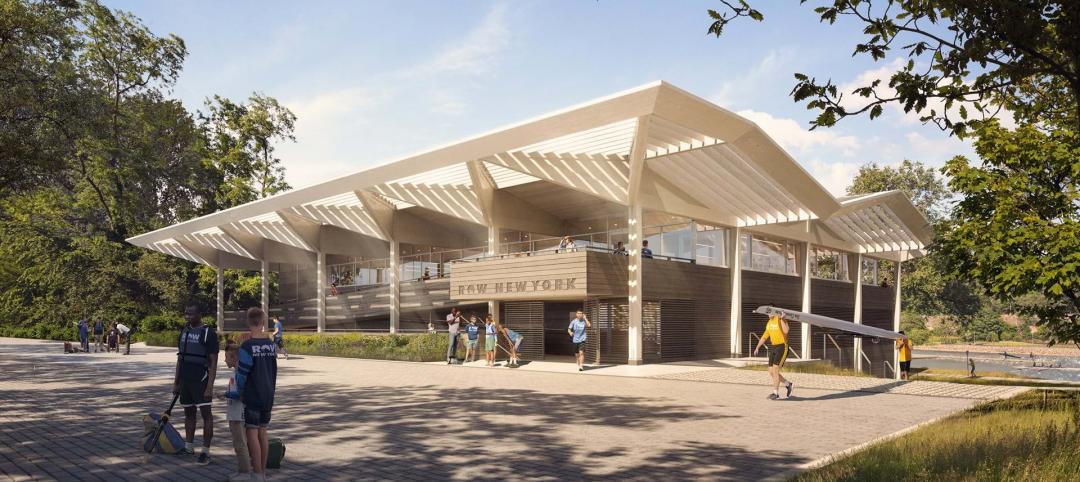The Frank Lloyd Wright School of Architecture at Taliesin announced today that it had reached almost 50% of the $1 million fundraising goal it needs to reach by the end of August on its way to independent status. The remaining $500,000 of these funds must be promised to the school by August 25 for the school’s Campaign for Independence to move forward.
In December of 2014, after an agreement between the Board of The Frank Lloyd Wright Foundation and The Frank Lloyd Wright School of Architecture, the School agreed to raise $2 million, with $1 million of it by the end of this month, in order to achieve the financial autonomy necessary to become an independent organization.
Accreditation for the school has been threatened because the Higher Learning Commission changed its by-laws and would no longer accredit schools that are operating divisions of larger institutions with multi-faceted missions.
The School’s professional M.Arch degree program offers graduate students design-intensive studio experiences at campuses in Taliesin West (Scottsdale, Ariz.) and Taliesin (Spring Green, Wis.). Over the last year, the school has revamped its curriculum to provide a better experimental graduate program in architecture. It focuses on learning how to make the human-made environment more sustainable and open. Students work with local communities to both design and build projects, and they make shelters that each student lives in for his or her final semester.
Accreditation for the school has been threatened because the Higher Learning Commission (HLC) changed its by-laws and would no longer accredit schools that are operating divisions of larger institutions with multi-faceted missions. Facing the possibility of the Frank Lloyd Wright School losing accreditation and potentially closing, longtime supporters suggested the possibility of raising funds to create and support an independently-incorporated school.
The Foundation Board agreed that, if the school's community could raise funds sufficient to demonstrate that the new organization would have “its own financial resources” (as explicitly required by the HLC’s by-laws), then spinning off the school would not present the same obstacles. The new, independent school organization would take ultimate fiduciary responsibility for itself.
As part of the new structure, the Foundation would donate over $1 million in facilities-related cash expenses every year, related to the school's use of Taliesin West and Taliesin as its campuses (at no cost to the school). The Foundation would also contribute an additional subsidy of $580,000 to the school in 2015, with decreasing levels of such additional transitional support over the next five years (but always continuing to cover 100% of annual facility-related expenses which total more than $1 million annually).
In order to achieve the desired independence and continue as a stand-alone School of Architecture, gifts and pledges for an initial $1 million in contributions must be received by August 25, 2015 – and gifts and pledges for a second million must be received by December 31, 2015.
Related Stories
Giants 400 | Aug 8, 2019
2019 Office Giants Report: Demand for exceptional workplaces will keep the office construction market strong
Office space consolidation and workplace upgrades will keep project teams busy, according to BD+C's 2019 Giants 300 Report.
Museums | Jul 29, 2019
A new museum debuts inside the Empire State Building
A $165 million, 10,000-sf museum opened on the second floor of the Empire State Building in New York City, completing the second of a four-phase “reimagining” of that building’s observatory experience, which draws four million visitors annually.
Multifamily Housing | Jul 23, 2019
Is prefab in your future?
The most important benefit of offsite construction, when done right, is reliability.
Healthcare Facilities | Jul 15, 2019
Can a kids’ healthcare space teach, entertain, and heal?
Standard building requirements don’t have to be boring. Here’s how you can inject whimsical touches into everyday design features.
Architects | Jul 10, 2019
9 picks from NeoCon 2019
Interior architect Mary Bartlett selects her favorite products and systems from the 2019 NeoCon show, Chicago, June 10-12, 2019.
BD+C University Course | Jul 8, 2019
Shadow box design: To vent or not to vent [AIA course]
A curtain wall shadow box is a spandrel assembly consisting of vision glass at the building exterior and an opaque infill at the interior side of the curtain wall system. This course is worth 1.0 AIA LU/HSW.
Architects | Jul 8, 2019
Unity Temple, Robie House among eight Frank Lloyd Wright projects to receive World Heritage status
The UNESCO designation includes signature works designed by Wright during the first half of the 20th century.
Architects | Jul 1, 2019
Perkins Eastman Co-founder Mary-Jean Eastman to keynote Women in Design+Construction Conference
Two of Perkins Eastman’s firm leaders—Mary-Jean Eastman, FAIA, Vice Chair and Managing Principal of its New York City studio, and Barbara Mullenex, AIA, Managing Principal of the Washington, D.C., studio—will share anecdotes about their personal journeys to the top of a global architecture, design, and planning firm, at Building Design+Construction's fourth annual Women in Design+Construction Conference. The event will take place November 11-13, 2019, at the Fairmont Scottsdale Princess resort in Scottsdale, Ariz.
Sports and Recreational Facilities | Jun 27, 2019
Foster + Partners unveils design of wooden boathouse for Row New York
The project will sit on the banks of the Harlem River in Sherman Creek Park.
Building Tech | Jun 26, 2019
Modular construction can deliver projects 50% faster
Modular construction can deliver projects 20% to 50% faster than traditional methods and drastically reshape how buildings are delivered, according to a new report from McKinsey & Co.

















